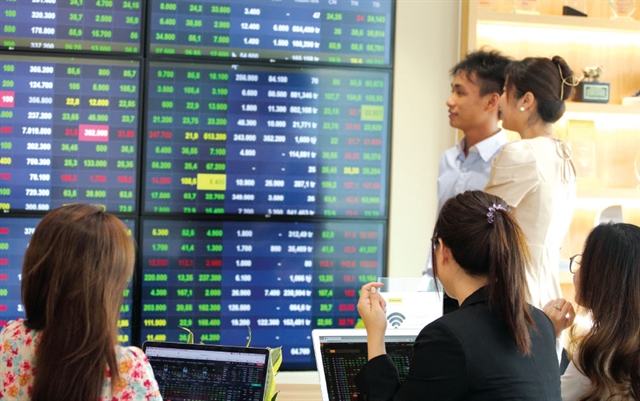Global funds have purchased a net $9.64 billion in stocks across emerging Asian markets, excluding China, over the past three weeks - the longest streak of inflows since March 2024.

HÀ NỘI — As global trade tensions subside, stock markets, including Việt Nam's, are seeing a positive response.
Recent developments in tariff negotiations, especially between the US and major trading partners, are playing a crucial role in shaping market dynamics.
Ongoing trade discussions have shown encouraging progress, highlighted by a significant agreement between the US and the United Kingdom, the first since the US administration implemented reciprocal tariffs earlier this year.
These negotiations have alleviated trade tensions and sparked a notable increase in foreign investment.
Data from Bloomberg showed that global funds have purchased a net US$9.64 billion in stocks across emerging Asian markets, excluding China, over the past three weeks, marking the longest streak of inflows since March 2024.
In Việt Nam, the stock market reflects this renewed optimism. The Hồ Chí Minh City Stock Exchange (HoSE) reported trading liquidity exceeding $1 billion on May 14, with the VN-Index surpassing the 1,300-point threshold.
Tyler Nguyễn Mạnh Dũng, chief market strategist at Hồ Chí Minh City Securities Corporation, identified three critical factors driving this recovery: valuation adjustments, easing tariff fears and stability in key export sectors.
Following a period of sell-offs, stock valuations have become increasingly attractive, with price per earning ratios now below the five-year average, prompting investors to reconsider market entry.
Meanwhile, as concerns over tariffs diminish, investor anxiety regarding potential price hikes on Vietnamese exports has lessened. Việt Nam’s proactive negotiation stance with the US positions it favourably in the evolving trade landscape.
He added that industries such as seafood, textiles and timber, vital to Việt Nam’s export economy, are expected to remain largely unaffected by US tariffs, bolstering investor confidence in related equities.
After a period of panic selling, foreign investors have returned to net buying, driven by the rising prices of major stock groups such as banks.
In the first half of May, the net buying value by foreign investors exceeded VNĐ4.2 trillion (US$161.8 million).
Despite the positive market trends, tariffs continue to be a significant concern.
Bùi Nguyên Khoa, deputy director of the BIDV Securities Analysis Centre, noted that while the risk of a US economic downturn appears to have diminished, upcoming negotiations will present challenges.
The US government maintains a firm stance on certain sectors, particularly pharmaceuticals and semiconductors, suggesting that tariffs will remain a strategic tool for domestic manufacturing incentives.
Nguyễn Thị Mỹ Liên, chief analyst at Phú Hưng Securities, emphasised that the baseline tariff of 10 per cent imposed by the US is likely to persist, creating ongoing pressure on global economic growth.
In light of these evolving conditions, investors are urged to reassess their portfolios.
Khoa recommends increasing exposure to sectors less impacted by tariff policies, such as banking and infrastructure, while also considering cash positions as the VN-Index approaches short-term resistance levels between 1,320 and 1,340 points.
Liên anticipates that the market will shift toward a phase of informed assessment rather than fear, highlighting opportunities in domestically focused sectors that are less reliant on international trade. — BIZHUB/VNS
- Tags
- US tariffs







